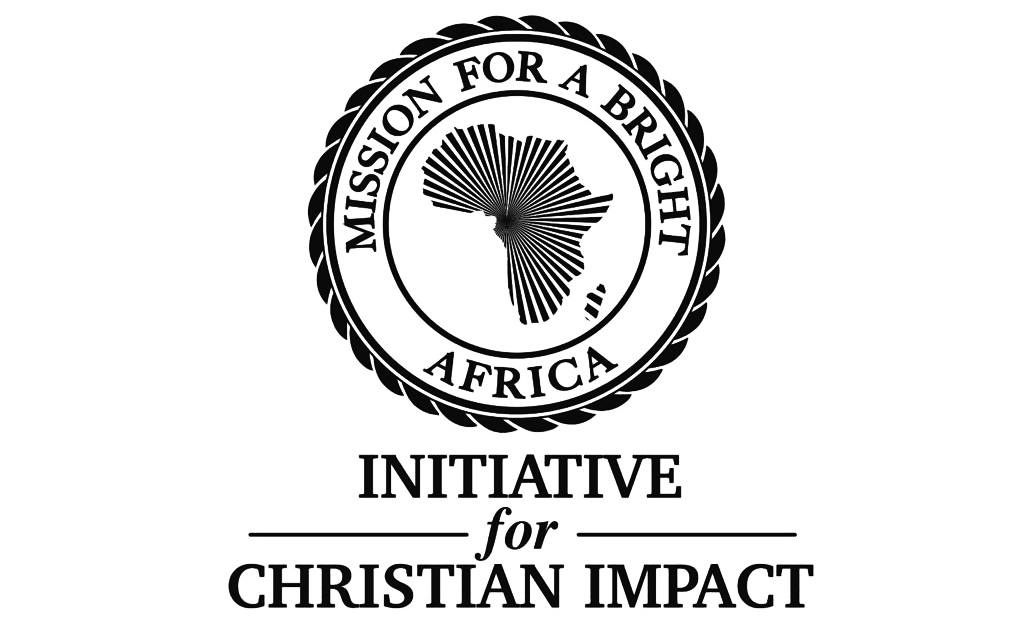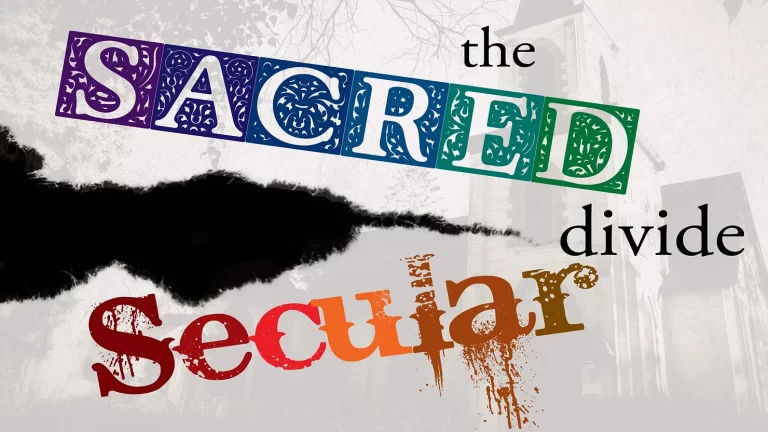How COVID-19, provides challenges and Opportunities for a New Approach
Introduction
BBC rolled out a 3 series program started on Sunday 12th July and titled it “The Pandemic that Changed the World”. Indeed, this disease which began in Wuhan in Hubei province of China in late 2019, has become a global pandemic. Fingers are being pointed in all directions. The Chinese authorities who failed to communicate promptly, accused WHO of being sluggish in her response to the outbreak. Others cite the ignorance of history, others blame complacency of governments and declining commitments of multilateralism, which Prof. Ian Goldin termed as the butterfly defect of globalization. Not to mention the various conspiracy theories.As at 13th July 2020, we have 12.7 Million confirmed cases of COVID-19 and 566,654 deaths as a result of the pandemic. Africa has recorded 477,575 confirmed cases which is about 3.7% of the total global infections and 8253 death which 1.4% of total death according WHO update report. (World Health Organization, 2020, July 13). This is a pandemic of global proportion; we are all either infected or affected one way or the other. It has unprecedented economic, social, and political consequences, not to mention the spiritual.
We have come to terms with what BBC and others term “the New Normal” because of the significant life changes this pandemic has brought on us. We no longer visit friends and family; we no longer hug and hold hands because we love them and do not want them to be at risk. We match clothes, covering our nose and mouth. For survival, one must learn to do a lot of essential things from the comfort of one’s home. This seminar is one of the results of the pandemic. Now the average person knows that regular washing of hands with soap under running water is a wise thing to do.
- Biblical vision for the church is moral.
This period calls for deep reflection, especially for people of faith because God intends for us to penetrate the world as salt of the earth, rubbed into the meat to slow down or stop the decay process, and to be the light of the dark world. We are or are supposed to be the moral voice in the world. No socio-economic or political system can exist without some kind of belief and values. I mean every development has a belief and moral foundation to it. As people of Faith, we know our Lord Jesus provides that basis upon which we can make meaning for faith and life. Jesus said “everyone who hears this words of mine and acts on them will be like a wise man who built his house on the rock … but everyone who hears these words of mine and does not act on them will be like the foolish man who built his house on the sand” Matthew7:24, 26.
The church is referred to as a household of faith, the church of the living God, a pillar and buttress of the truth 1Tim3:15. The product that is supposed to come out of such a Holy institution is “a man of God” thoroughly equipped for every good work. Dr. John Stott refers to such a product as counter-culture: “Christ calls us to obedience, to be different, non-conformist – joyful, obedient, loving and free – will do more than please God: it attracts the world.” (Stott, 1977). Our lifestyle must oppose the dominant values and behavior of society.
- The theological implications of COVID-19 Global pandemic.
As People of faith who affirm the sovereignty of God over his creation, we must be the first to look to the scriptures for the meaning and the reason for COVID-19. What opportunities does God give the church in the face of COVID-19? I was studying Paul’s long Journey to Rome and I was amazed at the providence of God. Busy Apostle Paul was under lock down for more than two years. It was within this long treacherous year of incarceration in which the Lord’s commission that he will carry his name before kings was fulfilled (Acts9:15). How could he have spoken to Governor Felix about Christ, about righteousness, and judgement in his privacy but as prisoner? How could he have been at a public function to share his testimony under the guise of defense to a gathering of kings, generals, and leading men of Caesarea if he was not a providential prisoner (Acts25:23)? He found himself going to Rome as a prisoner (Acts23:11). How could he have stood before Caesar and given his testimony if the providence of God had not taken him there as prisoner? (Acts27:24). Yes, it was with the hands of wicked men but with God set purpose that this happened. He works all things according to the purpose of his will. Eph1:11b. William Barclay says “There is purpose in everything; on the helm of things is the hand of the unseen steersman – God…” (The Acts of the Apostles DSB series, P. 192). “There is no wisdom, no insight, and no plan that can succeed against the LORD.” Prov 21:30-31.
Definitely the Lord is addressing the Global Church through COVID-19. Often when God’s people do not pay heed to his Word, sometimes God resorts to speaking through his Works. Unfortunately, most times we are unable to decipher his voice in the circumstances in which we find ourselves, and resort to blaming others. We blame politicians, we blame the scientists, and we blame the rich and powerful. As one of popular local prophets who passes for a comedian said in a clip which went viral on social media. “I don’t understand what is happening in this country. The church has been asked to meet for only an hour whiles the Electoral Commission and the political parties are flouting the laws in their primaries and in registration of voters.” He continued, “since the inception of this pandemic the government’s mantra was stay home, stay home, now that the campaign season is picking up steam the mantra has changed to come out and register, come out and register. This shows the hypocrisy of our political leadership”. He concluded “God punish all such hypocrites.” It is clear we are looking outside ourselves us for the problem. If we continue that way there will be no need for sober introspection. God sent a storm over a ship. All the passengers and crew were in danger of perishing at sea just because of one rebellious son of His, Jonah. It is not farfetched to say that God allowed COVID-19 for the sake of the church to wake up.
- The Continental Church before the COVID-19 Global pandemic: Ghana as a case study
There is no gainsaying that the church on the continent had grown and it is still growing. Currently we have over 360 million Christians south of the Sahara and it is estimated by 2025 we will almost double to 600 million. In Ghana we can boast of our country being 71.2% Christian. At least from 1960 till 2010 per the census the church has grown from 42% to 71.2% of the total population of the country. Like the Thessalonians church we boast of how people have turned to God from idols to serve the living and true God (1Thessalonians 1:9). But COVID-19 has exposed the rootlessness and the shallow foundation of the church.
It seems like the church was running with red light indications on our dashboard warning us of a looming problem with our vehicle. We knew our vehicle was not performing at its optimum, but we could not stop because of the fast flow of the traffic. COVID-19, like a policeman, brought us to a halt. The pandemic, with its attendant lockdowns, subsequent partial lockdown and the ban on social and spiritual gatherings brought us to an abrupt halt which we were not ready for. It revealed challenges which if not addressed, we stand the risk of becoming irrelevant to the society.
4. Challenges facing the continental Church as revealed by COVID-19
- The continental church is pastor/ prophet driven. Pastors and a few church workers are the players and the rest of the congregation are spectators. We gather on Sundays and Fridays for service. During the week some go for “hot Jericho hour prayers”, breakthrough prayers served either on the school park, in the heart of the forest or on some mountains or in chapels and that is all for the week. From time to time, we whip up spiritual fervor among members by organizing “Speed programs” for a week or two and invite the latest man of God to preach some motivational sermons, perform some miracles, and give customized prophecies, spiced with “hot prayers with clapping of hands and stamping of feet. These suffice for the upkeep of the average believer in Ghana.
- Worship is seen as coming before the right man of God to have our emotional and material needs met. It is not about challenging and awakening the conscience but to making the person feel better than when he came. This has not prepared the laity for ministry or service. So in wake of the lock down, many Christian believers’ witness was silenced, their prayer lives and time for study of God’s word weakened. Their fellowship has dried up.
- COVID-19 exposed and questioned what we have taken for granted as the norm. Worship is church building centered. We are all trying to build that unique Solomon’s temple befitting the name of our Lord Jesus Christ. The pandemic has revealed that we cannot continue to make the church building the center of worship. The average believer has been tuned to reach out to God better in the chapel than in the closet. Any other meeting which is outside the church building is seen as substandard. So many people are Sunday and Friday worshippers and of course pay their tithes and so have fulfilled all righteousness. So they have been taught directly or indirectly.
- The average church has no alternative structure for discipleship and worship. Even those who have realized it are not strong enough and not well resourced. As someone said we have no underground to go to when we were scattered. God used the pandemic to tell us that this church building model is not helpful for a strong and robust church. The temple-focus model is not sustainable in this 21st century.
- Our missional role was called into question. It became clear there were vulnerable people. There was backlash at churches who, in the wake of the lockdown, quickly shared their bank account information, introduced online payment systems with short codes, and official mobile money payment systems which can be linked to bank accounts for offerings and tithes. It is as though the church is interested only in tithes and offerings, as if the church is out to milk her members. Suddenly, wage earners did not have a job to go to. People were laid off or their salaries were reduced. It took this crisis for the church to realize she has vulnerable people in her midst and around her. How should churches reach out to members and the community in which they exist? The church will have to step up in providing logistics and emotional support for the vulnerable and marginalized. Simple systems like creating a food bank, providing meals and so forth. will make the church credible in the eyes of the world.
- The threat of nominalism. The average believer has been on his own since the outbreak of COVID-19. He/She has become used to not going to the temple for worship for 3 months, that a significant number find it difficult to return back a church service that does not meet a real or felt need. In my context, I challenge believers by telling them that their lethargy is not due to fear of contracting the virus since they do not adhere to laid-down protocols. COVID-19 has and will expose the extent of nominalism in the church. Were we not rudely awakened to the fact that church was seen as a non-essential service provider and so was placed under the same lockdown as the pubs? Tacitly, we all agreed that the church provided non-essential service, even though we know that should not be the case. Now that restrictions are relatively relaxed, it will be reckless on the part of the church, if we pick up from where we left off as if nothing had happened. I am afraid we are shooting ourselves in the foot as a global, or continental or national church in doing just that. Some of us want a speedy end because we have some financial deficit to clear due to the lockdown.
We need to reexamine the life and practice of Church and assess how biblically compliant we are in the wake of this New Normal. We need to honestly look at ourselves in the light of God’s word. We need to look into the Mirror of the law of liberty and persevere to be the image given to us (James1:23-25). It is a call for just and fair appraisal, a serious SWOT analysis looking at our strengths, weaknesses, opportunities and threats. We need to ask ourselves, “can the church sustain growth qualitatively and quantitatively with the way it is led do we run the risk of weakness and irrelevance?”.
Opportunity to Re-strategize and Reprioritize to remain relevant
a. A call for continuous prayer to seize the opportunity to be relevant. Men of God, and kings who knew God could affirm their faith in God’s sovereignty in times of crises.
i. Job says “I know you can do all things, and that no purpose of yours can be thwarted.” (Job 42:2).
ii. Jehoshaphat prayed when his country was under attack “Oh Lord God of our fathers, are you not the God in heaven? You rule over all the kingdoms (2 Chronicles 20:6)
iii. The early church, under threat of persecution, cried out in prayer “sovereign Lord, who made the heaven and the earth-and the sea and everything in them. … For truly in this city there were gathered against your holy servant Jesus, whom you anointed, to do what your hands and your plan has predestined to take place. (Acts4:24b, 27a, 28) b. We need a new biblical perspective on the concept of church. We must re-examine and redefine the model of church• COVID-19 is challenging us to re-examine the model of church we have been operating with. We need a paradigm shift, a new biblical perspective if the church is to survive in the 21st century.
i. I believe we need to first of all re-define the concept of church. We may have to move away from emphasizing mega congregations at the expense of small groupings. In other words, we need to emphasize “small congregations” as the basis for mega congregations. ii. We also have re-define the concept of church membership. We may need to move away from looking at church members as individuals, primarily to seeing them in the context of families or households. The question we need to ask ourselves is how many families are there in the church as against what is the membership strength. Although there is nothing wrong with asking both.
iii. Finally, we also need to re-define the Christian family as Church. The Christian home must basically be perceived as church. This perspective must influence pre-marital counseling. When this happens, we can say with the Lord “the gates of hell cannot prevail against it.” The individual Christian family or household must be pivotal in the economy of the church and the kingdom of God. The church must not overlook the family as the building block of the church. The family Unit is the root of the local Church.
iv. We therefore need to re-strategize to empower the Christian family to see herself as the nucleus of the local church, and by extension the national and global church. There is the need to empower Christian families to stick together rather than breaking them apart. Empower them to be open and not closed households.
c. The missional role and prophetic voice of the church must be intentional
d. Evaluation of the missional and prophetic voice: How have we responded with generosity and support for the vulnerable? Are we giving hope to the dying and the grieving? We need a plan to reach out to church members and the community in which they exist not just in times of disaster and pandemic. As Jesus said, “the poor you will always have with you.” The church will have to step up in providing logistics and emotional support for the vulnerable and marginalized. Simple systems like creating a food bank and providing meals will make the church credible in the eyes of the world.
e. Evaluation of the content of discipleship in the light of the above: we need to evaluate the content of our discipleship training. What kind of Christians are we? Or what kind of Christians do we want to churn out? That is what this forum is about. Urgency for winning the lost people of the world, saved from the pandemic and for eternity.
Conclusion
I am afraid if the church reopens and we don’t prayerfully consider the issues raised in this forum and pragmatically respond to them we run the risk becoming irrelevant in the era of the New Normal.
References
- World Health Organization (2020, July 13). Coronavirus disease (COVID-19) Situation Report – 175, World Health Organization. https://www.who.int/docs/default-source/coronaviruse/situation reports/20200713-covid-19-sitrep-175.pdf?sfvrsn=d6acef25_2
- Kaye, Bruce (Editor); Stott, J. R. W. (Contributor) (1977). Obeying Christ in a Changing World: The Changing World, Volume 3. Fountain Books. https://afterall.net/quotes/john-stott-on-christian-counter-culture/






